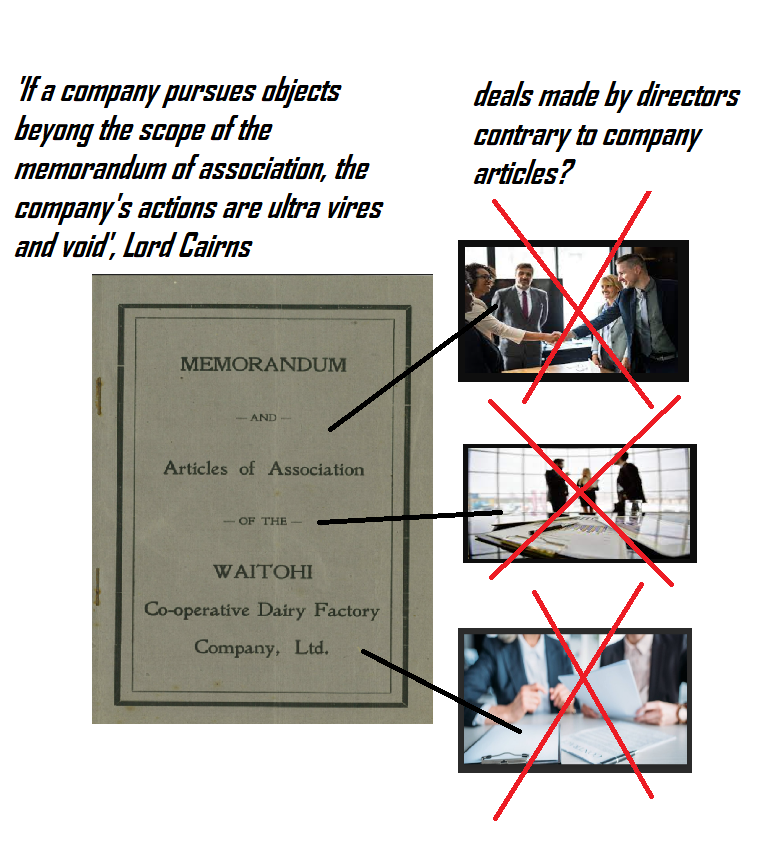Ashbury Railway Carriage and Iron Co Ltd v Riche (1875) LR 7 HL 653
Citation:Ashbury Railway Carriage and Iron Co Ltd v Riche (1875) LR 7 HL 653
No link to case - library research required.
Rule of thumb:If a director agrees a contract contrary to the company articles is it valid? No, it is not valid.
Background facts:
The facts of this case were that Ashbury manufactured, sold and leased railway carriages. Company directors agreed a contract providing a loan Mr Riche for him to build a railway line from Antwerp to Tournai. The directors who did this were subsequently dismissed and the company informed Riche that they would not be going ahead with the contract. Riche sued the company demanding they release the money of the loan.
Parties argued:
Riche argued that he had agreed this contract with legitimately appointed directors who were the agents of the company and that they were bound by the terms of this contract. The company argued that the purpose of the company was clearly stated in the company articles and that the directors who agreed this contract had no legal capacity to do so meaning that it was null and void.
Judgment:
The Court upheld the arguments of the company. Just because someone has capacity to act for someone in some capacities, it does not cover all capacities. The Court stated that where a company's articles, which are public document that anyone can check, do not allow it to enter a contract then the director has no capacity to do so, even if this is ratified at an AGM - the company articles must be altered by extraordinary resolution to allow it to do so. The company were successful and the contract was held to be null and void due to a lack of capacity - the company did not have to honour the terms of it. Riche lost the case and his contract was worthless.

Ratio-decidendi:
‘It was the intention of the legislature, not implied, but actually expressed, that the corporations, should not enter, having regard to this memorandum of association, into a contract of this description. The contract in my judgment could not have been ratified by the unanimous assent of the whole corporation.... if a company pursues objects beyond the scope of the memorandum of association, the company's actions are ultra vires and void’, Lord Cairns
Warning: This is not professional legal advice. This is not professional legal education advice. Please obtain professional guidance before embarking on any legal course of action. This is just an interpretation of a Judgment by persons of legal insight & varying levels of legal specialism, experience & expertise. Please read the Judgment yourself and form your own interpretation of it with professional assistance.

